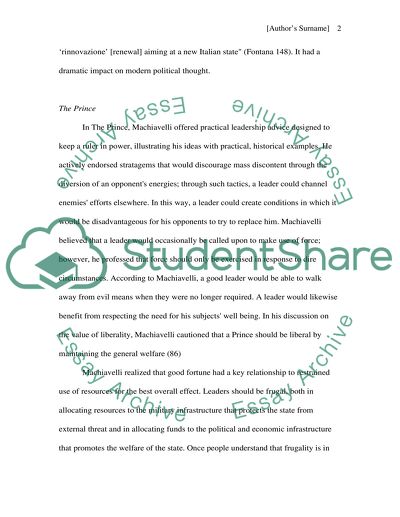Cite this document
(“Niccolo Machiavelli and the Modern World Research Paper”, n.d.)
Niccolo Machiavelli and the Modern World Research Paper. Retrieved from https://studentshare.org/philosophy/1440632-niccolo-machiavelli-and-the-modern-world
Niccolo Machiavelli and the Modern World Research Paper. Retrieved from https://studentshare.org/philosophy/1440632-niccolo-machiavelli-and-the-modern-world
(Niccolo Machiavelli and the Modern World Research Paper)
Niccolo Machiavelli and the Modern World Research Paper. https://studentshare.org/philosophy/1440632-niccolo-machiavelli-and-the-modern-world.
Niccolo Machiavelli and the Modern World Research Paper. https://studentshare.org/philosophy/1440632-niccolo-machiavelli-and-the-modern-world.
“Niccolo Machiavelli and the Modern World Research Paper”, n.d. https://studentshare.org/philosophy/1440632-niccolo-machiavelli-and-the-modern-world.


